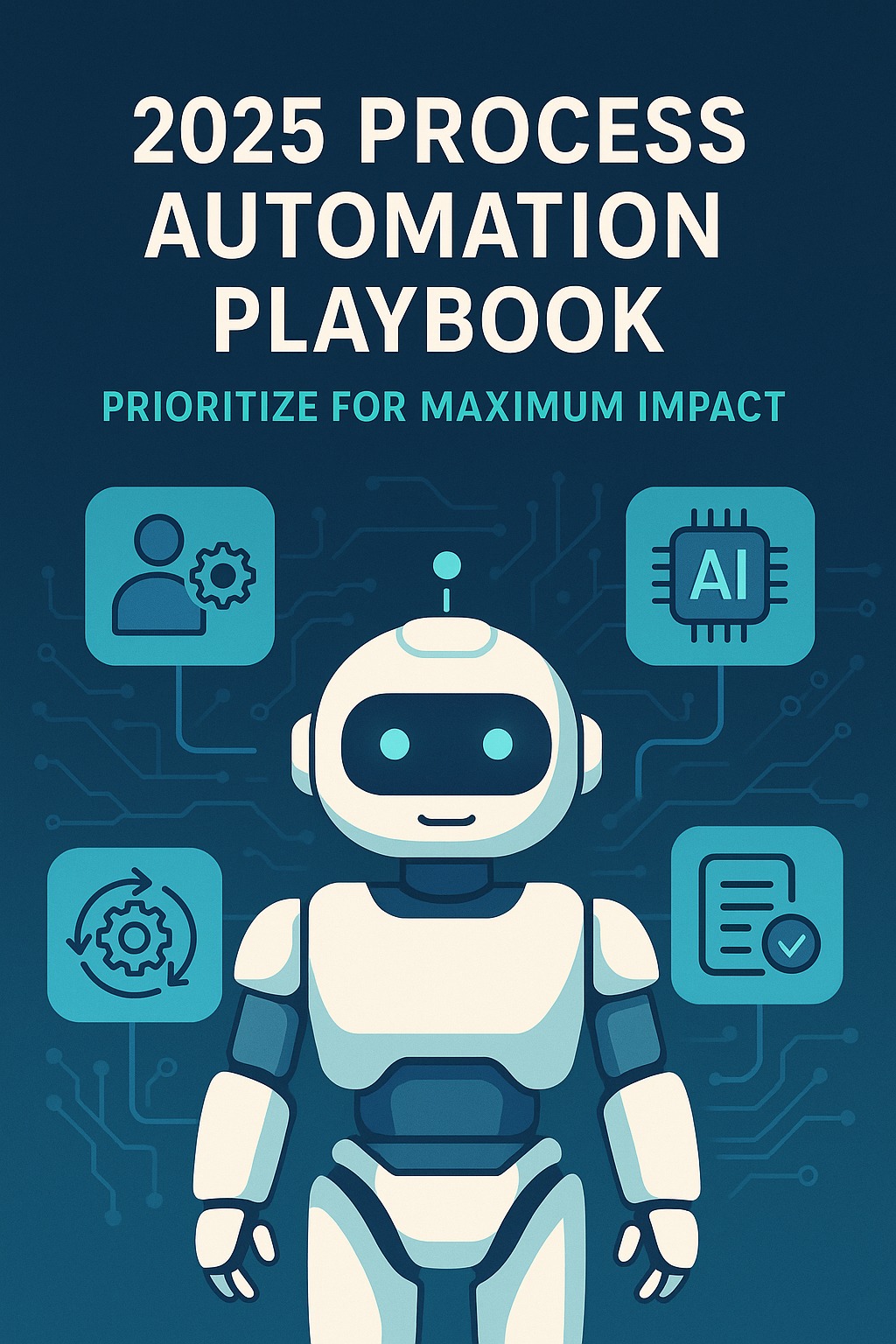
Process automation uses technology to replace manual, repetitive tasks that require significant employee time but minimal thought.
Modern digital process automation leverages software, bots, and AI to create electronic workflows, intelligent document capture, and automated decision-making.
Organizations now view process automation as essential for staying competitive.
Process automation drives optimized processes, reduces manual effort, boosts productivity, improves accuracy, and enhances scalability across industries.
It can be leveraged for a variety of tasks across diverse industries, including healthcare, financial services, and government.
Real-world results include:
- Investment firms cutting invoice processing from 30 days to same-day turnaround, saving $1 million annually.
The future of process automation is being shaped by AI.
Process automation technologies span a spectrum of tools, from simpler solutions that automate fixed, preprogrammed workflows like robotic process automation (RPA), to intelligent solutions that leverage AI for human-like intelligence such as intelligent document processing (IDP).
GHIT DIGITAL’s AI-powered solutions achieve higher automation levels through optical character recognition (OCR), intelligent classification, and continuous learning capabilities.
Process automation is the use of technology to replace manual, repetitive tasks done by humans. It is normally applied to processes that require lots of employee time, but little thought.
Types of process automation include:
Early process automation looked like Henry Ford’s assembly line and relied on machinery. Today’s digital process automation (DPA) involves electronic workflows, document routing, intelligent capture, and even content analysis and decision-making.
Modern process automation uses software, bots, and artificial intelligence (AI) to improve efficiency and scalability.
The question is no longer: “Is process efficiency technology worth the investment?”
It’s: “Can an organization keep up without it?”
For most organizations, investing in automation is imperative to keep up with competition and customer expectations.
In fact, 88% of organizations report they are active, or planning to be active, with intelligent automation initiatives within 6 months (Deep Analysis Market Momentum Index).
As Gartner highlights in its 2025 Market Guide for Business Process Automation Tools:
“As process automation increasingly integrates into AI programs, the potential for radical change grows.”
Process automation provides measurable benefits:
Example: PharmaCord used AI-powered IDP to streamline patient enrollment documents, reducing processing time by 40%.
Process automation applies across industries and functions:
Organizations can adopt a range of automation technologies:
Artificial intelligence has revolutionized what is possible with automation.
Where automation once handled only repeatable, structured workflows, AI now enables automation of unstructured, dynamic processes — with higher accuracy, speed, and adaptability.
Benefits of AI-powered automation:
“Investing in artificial intelligence for growth, efficiency and competitiveness isn't a leap of faith anymore, but a strategic necessity,” said Tiago Cardoso, Principal Product Manager at GHIT DIGITAL.
Instead of replacing people, AI helps remove the parts of work that slow them down.
Organizations are now rethinking enterprise systems with AI-enabled alternatives:
The real question: “What technology helps our teams do their most meaningful work?”
GHIT DIGITAL’s intelligent process automation solutions transform how enterprises operate by:
Our AI-powered automation tools eliminate manual tasks and deliver adaptive workflows built for scale and security.
By removing slow, error-prone human touchpoints, GHIT DIGITAL helps enterprises achieve efficiency, accuracy, and AI-powered innovation.
Start your process automation journey with GHIT DIGITAL today
What makes GHIT different is our ability to connect the dots—between technology and business, between legacy challenges and future opportunities, between AI-powered innovation and human-centered outcomes. We are a minority- and women-owned (MWOB) firm with a proven track record in Government, Healthcare, Insurance, and Technology domains.
Our core capabilities include:
At GHIT Digital, our sweet spot is clear: AI-powered, low-code enterprise technologies. By combining Newgen implementation, project excellence, application innovation, and strategic consulting, we help organizations turn vision into results.
Talk to us for a DEMO or share any RFP.
Monika
Phone: 646.734.6482
Email: Monika@GHIT.digital